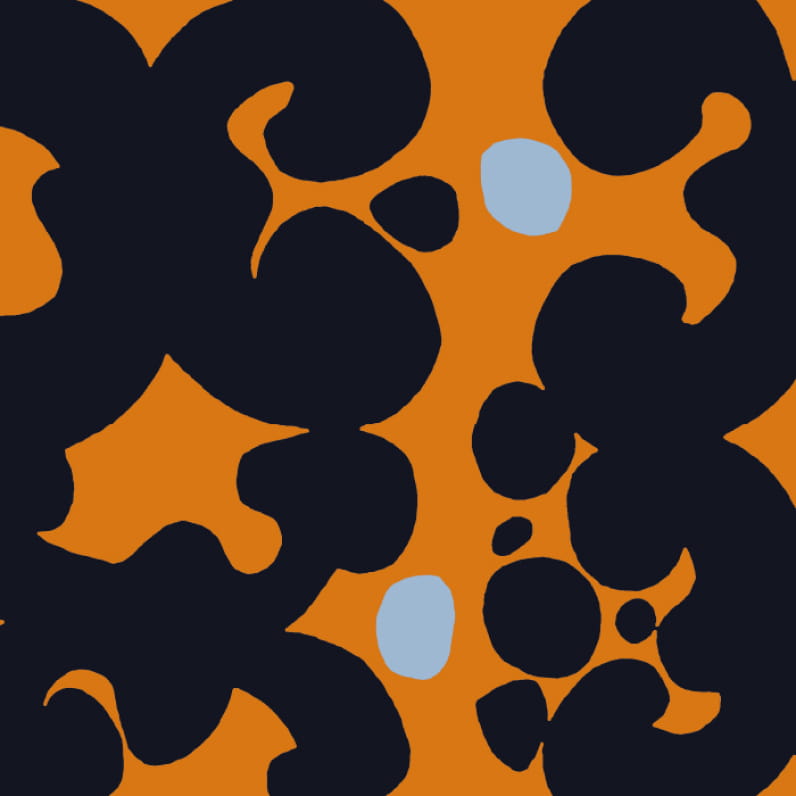
KEIDAS
DESIGN BY ANNIKA RIMALA, 1967
In the late 1960s, Annika Rimala drew inspiration from the youth culture of the time. Keidas (oasis) is representative of the rhythmic patterns she designed.
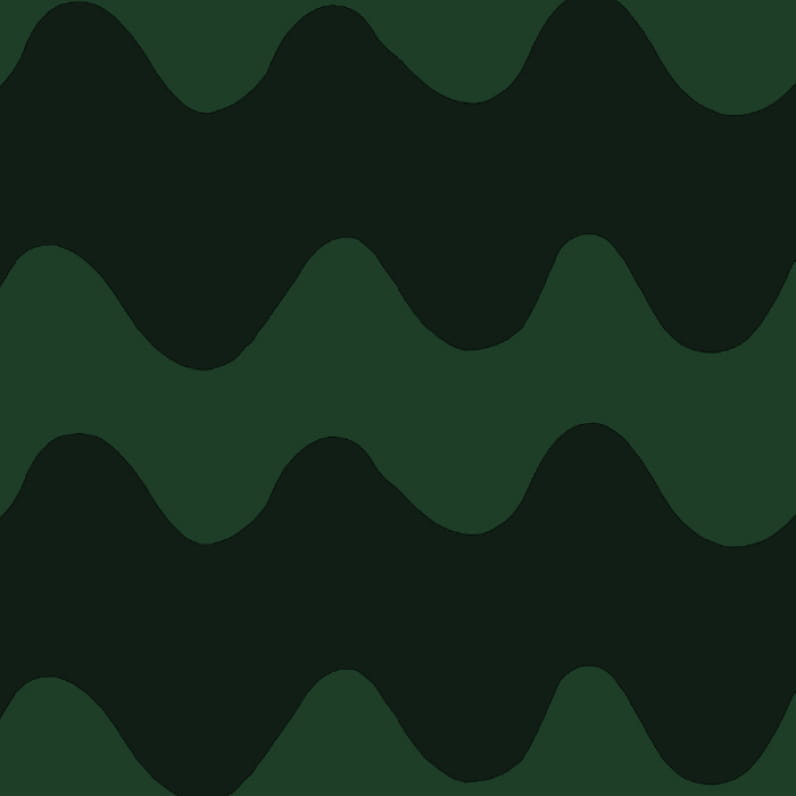
LOKKI
DESIGN BY MAIJA ISOLA, 1961
The idea for the Lokki (seagull) pattern came to Maija Isola when she was looking at a window with a curtain drawn across it. The sun was shining, and the wide folds of the curtain formed wavy shadows on the fabric. Maija’s sudden inspiration: if fabric is printed with waves, even a small piece appears richly folded.
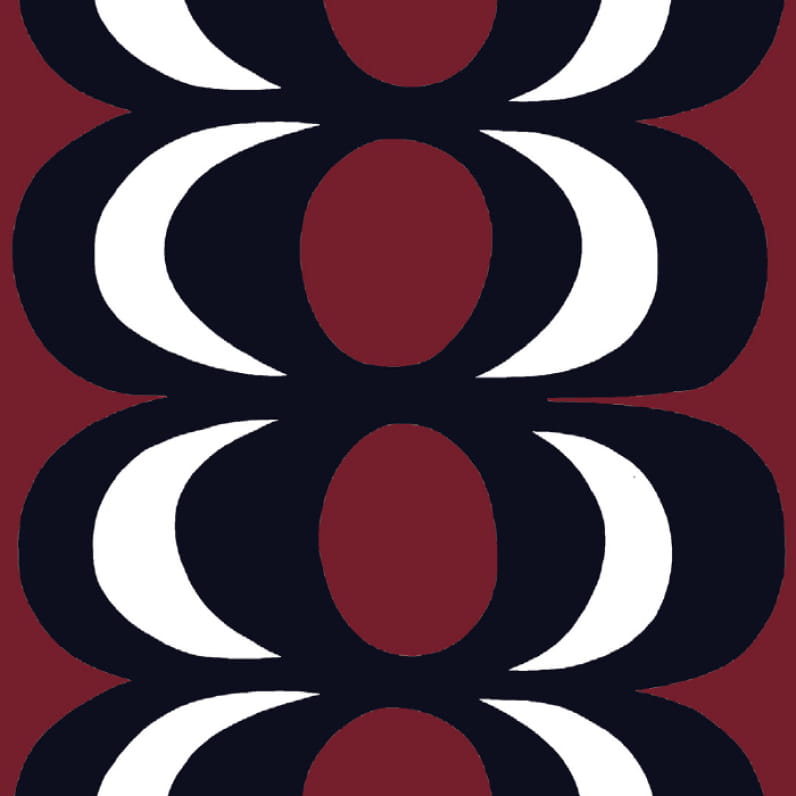
KAIVO
DESIGN BY MAIJA ISOLA, 1964
Maija Isola was inspired to create the Kaivo (well) pattern when she was fetching water from a well. After dropping the bucket into its depths, she saw how rippling circles formed on the surface of the water.
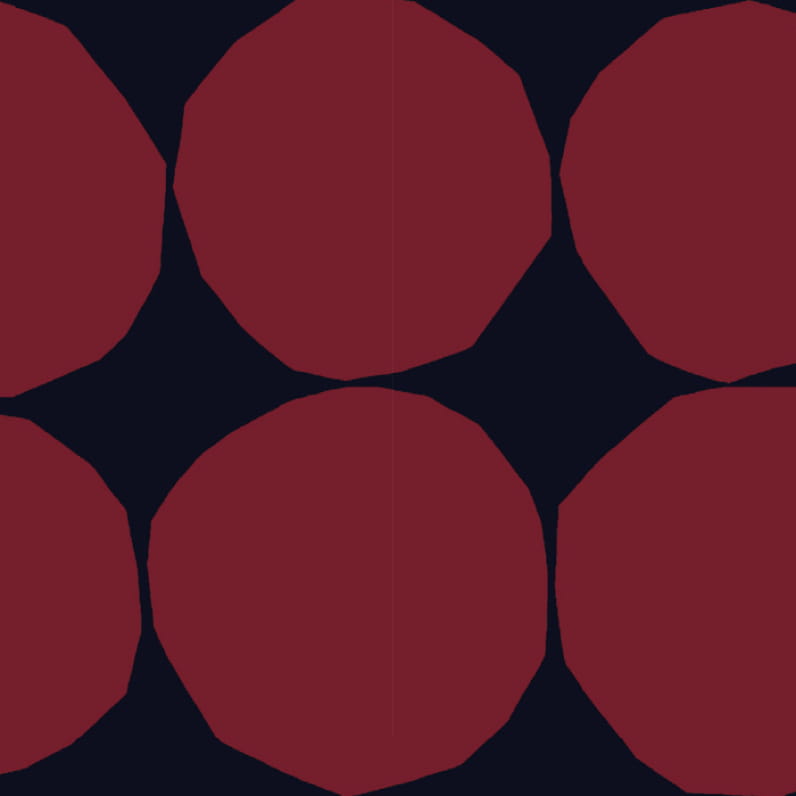
KIVET
DESIGN BY MAIJA ISOLA, 1956
The Kivet (stones) pattern builds on circles cut with scissors. The pattern was likely inspired by the large rough-edged stones on the designer’s home grounds.
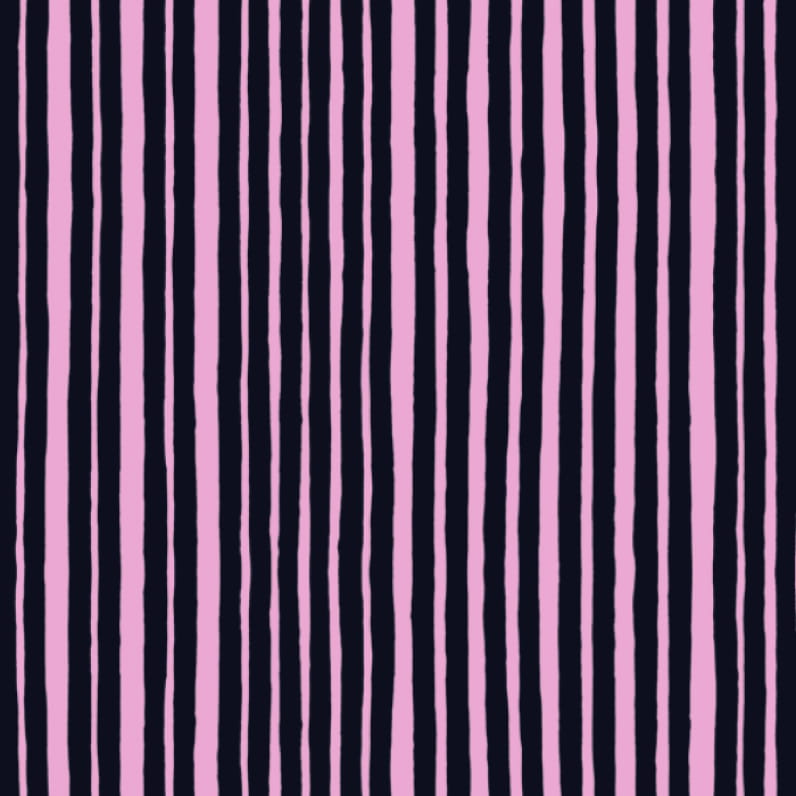
RAIDE
DESIGN BY ANNIKA RIMALA, 1966
Stripes have always been an integral part of the world of Marimekko patterns. The vivid freehand Raide (railway track) is one of the many Marimekko stripes created by Annika Rimala.
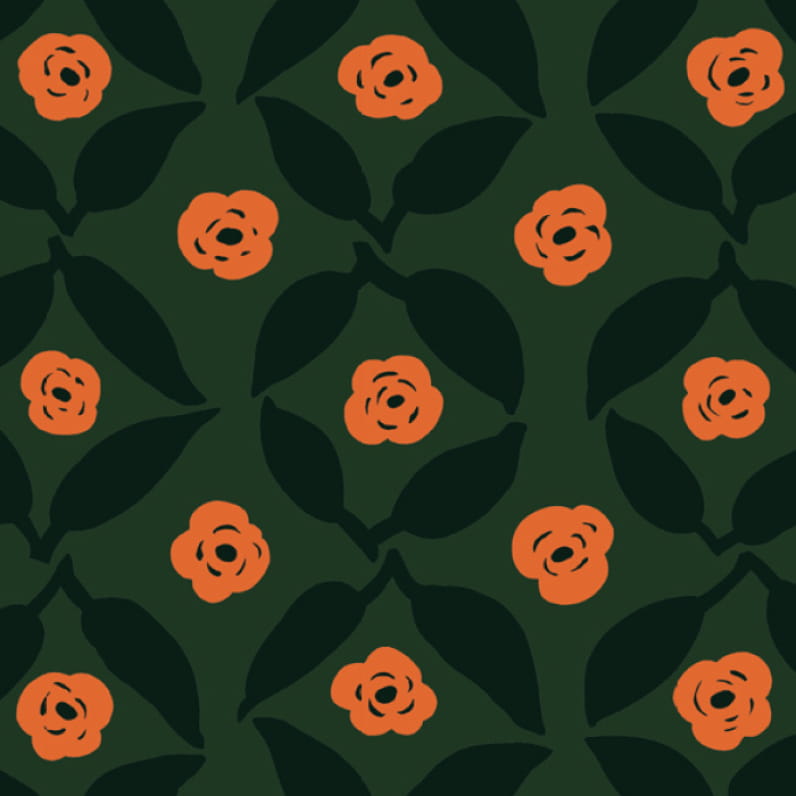
POPPY
DESIGN BY MAIJA ISOLA, 1970
The Poppy pattern was born after Maija Isola’s trip to Paris in 1970. She was inspired by Arab culture and Egypt to create patterns like Naamio and Poppy.
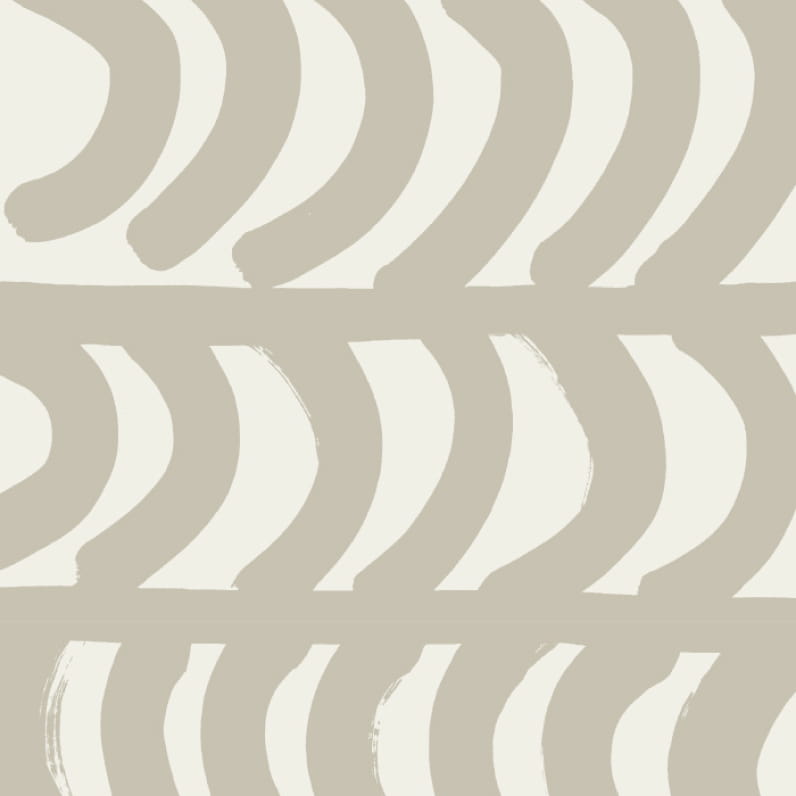
RAUTASÄNKY
DESIGN BY MAIJA ISOLA, 1961
“I danced with the brush.” This is how Maija Isola described the evenings she spent in Marimekko’s print factory in 1961–painting in gentle, sweeping brushstrokes as she swayed to the music. Meter upon meter of new patterns emerged. On one of those nights, the expressive Rautasänky (iron bed) design was created.
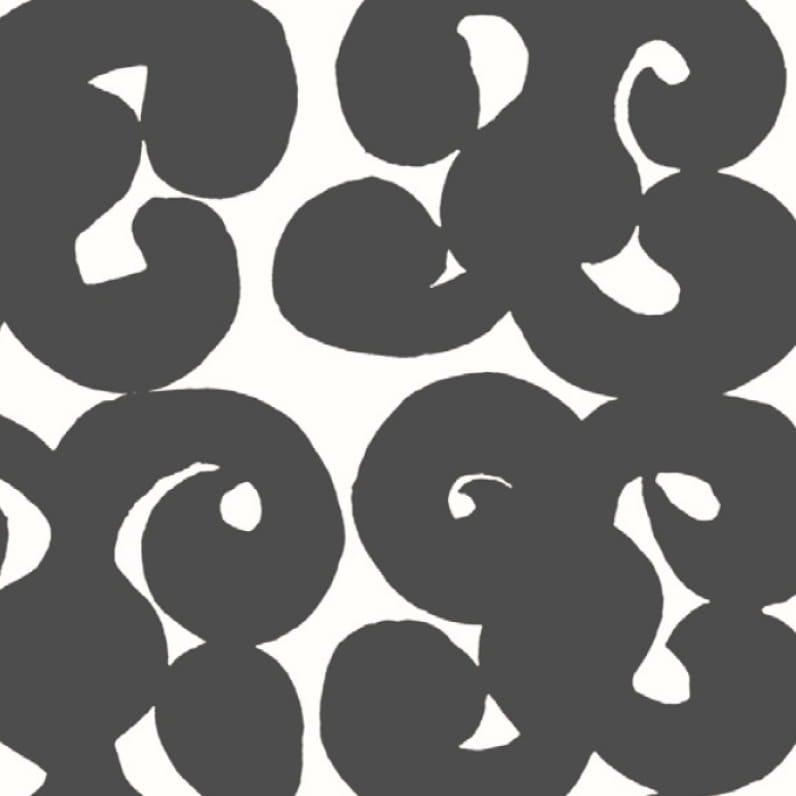
TARHA
DESIGN BY ANNIKA RIMALA, 1963
The Tarha (garden) pattern, a combination of ornamental and stylized geometric forms, reflects the spirit of the early 1960s.
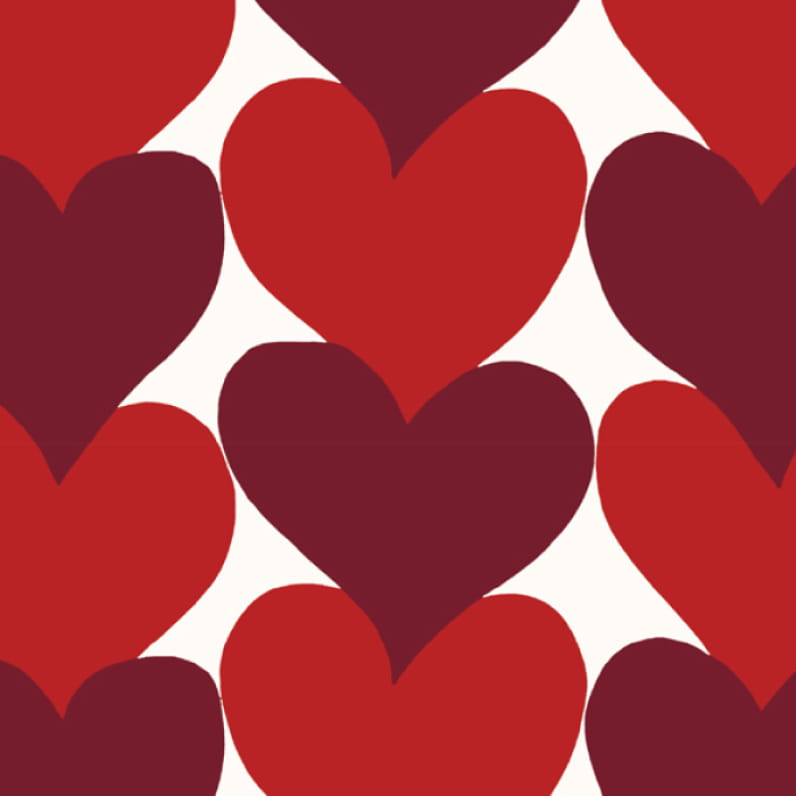
SIAMILAISET SYDÄMET
DESIGN BY MAIJA ISOLA, 1965
Maija Isola designed more than 500 fabric patterns, with an amazingly diverse range of motifs. She drew inspiration from traditional folk art and modern visual art alike. The cheerful 1965 Siamilaiset sydämet (Siamese hearts) pattern reflects the spirit of the 1960s.
